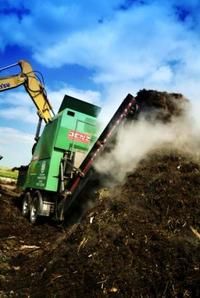Making Organic Compost

Organic compost is the number one ingredient to add to your garden to give it the nutrients it needs to successfully grow plants, vegetables and fruit. Not only does organic compost do wonders for your soil, it is also incredibly environmentally friendly.
Benefits of Organic Compost.
• Free and easy to make at home! If you have the time to make your own compost, it will cost you nothing. However, if you want to buy compost ready to use we can arrange swift compost delivery.
• Recycle your kitchen and garden waste. About a third of what you throw away can be used to make organic compost; table scraps, fruit and vegetable left overs, egg shells, tea leaves, newspapers, grass clippings, flowers and other plant cuttings. By reusing your waste you are reducing the amount of rubbish pointlessly filling up our landfills and also providing yourself with a great multi-purpose compost.
• Good for your garden; great for the environment. Organic compost contains highly beneficial microscopic organisms that allow soil to breathe and prevent deadly diseases without having to use chemical fertilisers which can be toxic to our atmosphere.
How to Make Organic Compost.
1. Collect a mixture of Carbon (‘brown’) and Nitrogen (‘green’) items.
• Carbon materials include; leaves, shrub prunings, pine needles, straw, hay, shredded paper and newspaper, dryer lint, corn cobs, cardboard and wood chips.
• Nitrogen materials include; food, fruit and veggie scraps, grass clippings, weeds, flowers, garden waste, seaweed, kelp, coffee and tea leaves, animal manure*.
*Please note: Do not use bones, meat or fish waste as this will attract unwanted pests. Only use manure you can trust; chicken or horse manure works best. Never use manure from your cat, dog or any other meat-eating animal.
A successful organic compost heap must have about 2/3 of carbon materials and 1/3 of nitrogen materials
2. Choose an area in your garden to build your compost heap. It needs to be bare earth about three feet long, three feet wide, and be able to be three feet in height.
3. Start by layering straw and twigs about two to three inches thick across your area. This is the foundation of your compost heap and will allow air to circulate whilst encouraging drainage.
4. Spread a thick layer of your Nitrogen rich materials over your foundation until it is several inches deep.
5. Add the same amount of Carbon rich materials on top and repeat by alternating the layers until your compost heap is about three feet high, or until you run out of materials.
6. Wet your compost heap using a hose pipe and cover with plastic sheets, old carpet scraps or wood. This will keep your organic compost moist and warm.
After about two weeks, encourage oxygen to circulate by turning your compost pile using a garden fork or shovel. This is also the perfect time to add more materials to your compost as you are mixing it. If your compost heap seems dry, add a little water to moisten it again.
Continue to turn your organic compost every two weeks and you will soon see steam coming from it, worms living in it and the texture will transform into a flakey, black material that smells sweet; your compost is ready!
Use the fully decomposed compost wherever you desire in your garden and leave any leftover fresh material to start the process all over again?
Don't forget you can order a range of compost online if you need speciality compost such as mushroom compost. You can also order bulk compost from us and arrange for speedy compost delivery at your convenience.